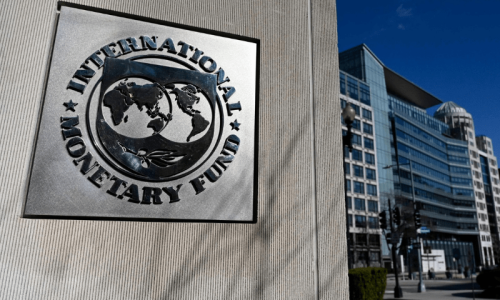GENEVA, July 4: United Nations Secretary General Ban Ki-moon will open one of the world body's biggest meetings with business leaders on Thursday to try to sharpen global standards for corporate behaviour.
More than 600 senior executives are registered for the two-day meeting of the UN's Global Compact, a controversial seven year-old partnership set up by Ban's predecessor Kofi Annan.
The Compact is aimed at harnessing globalisation by getting the private sector to voluntarily improve social and environmental practices.
Government officials, including French Foreign Minister Bernard Kouchner, civil society groups and labour leaders are also due to take part in the gathering, which will discuss issues ranging from labour relations to climate change.
Top business participants due in Geneva include Neville Isdell, chief executive of Coca Cola, the Managing Director of India's Tata Steel, B. Muthuraman and Anne Lauvergeon of French nuclear giant Areva.
A 100-strong Chinese business delegation is also expected.
Nearly 4,000 companies have now signed up to the Compact's 10 principles covering employment standards, human rights, anti-corruption measures and the environment, according to the United Nations.
Officials argue that most of the companies on board no longer simply pay lip-service to the partnership.
“That has fundamentally changed, there has been a significant shift towards quality,” the Compact's Executive Director Georg Kell told journalists.
However, human rights and development campaigners are still sharply critical of the Compact.
The UN's first ever survey on the Compact published this week also revealed major shortcomings in a sample of about 400 participants, especially in two key fields -- human rights and anti-corruption -- despite overall progress.
The British-based group Action Aid said the Global Compact had failed to stop corporate human rights violations.
“The UN's Global Compact is flawed because its entirely voluntary,” said the group's trade head, Aftab Alam Khan, calling for legally-binding regulations on some 77,000 multinational companies.
“It has been a mockery because several companies violating human rights have been free to join and remain in the Global Compact -- benefiting from an association with the UN,” Khan added in a statement.
Action Aid notably questioned the role played by subsidiaries of mining giant Anglo American -- who's chairman Mark Moody-Stuart is on the Compact's advisory council -- in Ghana and South Africa.
Amnesty International also criticised the voluntary nature of the Compact.
“I would say that we are very concerned that it isn't being very effective,” Audrey Gaughran of Amnesty told AFP. “There is no analysis of the substance.” At least one of the companies with participants registered for the meeting, electric engineering giant Siemens, is embroiled in corruption investigations in Germany, including on suspicion of setting up a slush-fund to obtain foreign contracts.
Kell said the United Nations delisted 600 companies last year for the first time and another 500 could be removed this year because of shortcomings in their reporting on implementation of the Compact's principles.—AFP
















































Dear visitor, the comments section is undergoing an overhaul and will return soon.